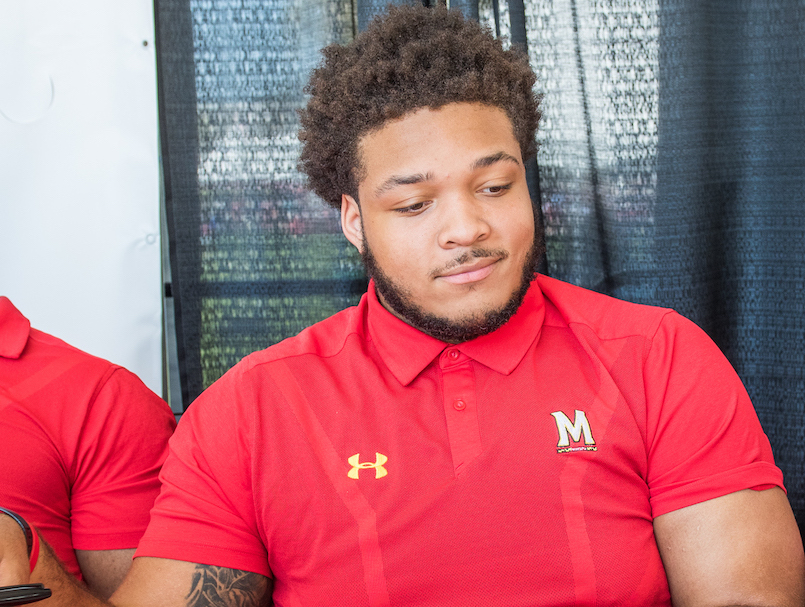Views expressed in opinion columns are the author’s own.
Jordan McNair’s fatal heatstroke during football practice, on a field overseen by several staff trained to watch for and take care of such problems, demands reexamination of the University of Maryland’s football program.
Even if we weren’t seeing reports of a deeply toxic and dangerous culture surrounding the entire program, a college student dying from a condition with a 100 percent survival rate when given the proper care is cause enough to require change and some kind of justice. It cannot be a mistake that is allowed.
However, we do have reports that this university has cultivated a program where players are expected to ignore their physical comfort, or else be humiliated, belittled and pushed out of their coaches’ good graces. We also have reports from players who had no issue with the team culture, who felt their coaches had pushed them how they needed to be pushed and consistently been good to them. These experiences aren’t conflicting; rather, it makes it clear that coaches haven’t been treating players on the team equally. While some have been given the resources and opportunities for growth, others are “run off,” in the words of a current player.
More than 20 players have dropped out of the program since DJ Durkin’s tenure began. One former player was forced to overeat to the point of vomiting to put on weight, and another was told he ought to leave the program after smiling during a team meeting. A current player said these efforts to push out players are part of a greater pattern, as “they usually target and pick a couple people they think are soft and go after them.”
At the same time certain players are being verbally and physically abused by their coaches, others are rewarded with membership in the Champions Club, a program meant to reward players who met coaches’ expectations. It’s a club that celebrates having the coaches’ favor, and it’s a club precisely for those people who aren’t perceived as soft and unworthy of the program. There’s a clear distinction for people who staff think deserve to be in the program, and it’s likely that they weren’t encouraged to leave when committing some minor infraction.
Without pressure from such a targeted team culture, McNair could have stopped during practice at the point of exhaustion and prevented heatstroke in the first place. His mother was emphatic that he pushed himself because, “if that’s the culture, then he didn’t want to be called any names, things that they say they’ve been called.” However, he was in an environment that actively discouraged self care. As McNair struggled to stand after a sprint, head football athletic trainer Wes Robinson told players to “drag his ass across the field.”
And perhaps, without pressure from such a targeted team culture, Robinson and other trained staff could have effectively done their job and addressed McNair’s heatstroke before it became fatal instead of yelling to push him further.
Having some players defend this university’s football program can’t minimize what happened to the others; it’s not a matter of being a poor fit for the sport when players aren’t speaking from the same experiences. Some players are pushed to eat more food, run longer practices; some are pushed to the point of vomiting, the point of untreated heatstroke. It can’t be an argument about who deserves to be in the Champions Club and who deserves to be treated with basic human care when that question confronts a boy’s death.
Sona Chaudhary, opinion editor, is a junior English and geology major. She can be reached at sonachaud@gmail.com.



